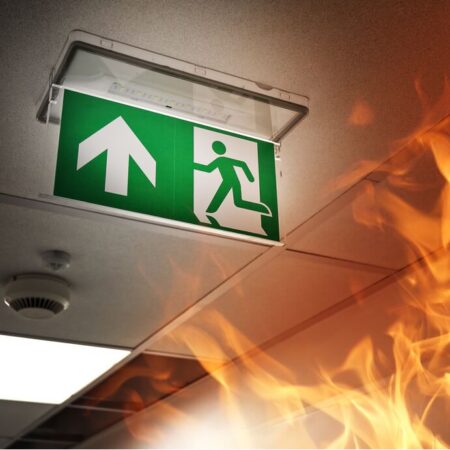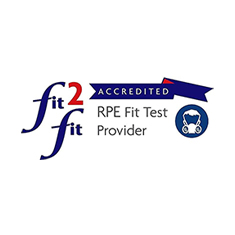FAQ
Need Assistance?
If you cannot find the answer to your question, feel free to contact us.
General
Where are your training courses held?
We have open-courses in various cities and towns throughout the UK, please visit our ‘open-course’ calendar to book a suitable course date at a location convenient to you.
Will I receive a certificate for attending your course?
Yes, upon successful completion of one of our courses you will receive a nationally regulated qualification.
Do I have to prepare in advance for your courses?
No, in many cases there is no prior work to be done. However having a general understanding of the course you are about to attend is always beneficial to the learner.
First Aid Training
How many first aiders do I need?
There is no hard and fast answer, it depends on your first aid risk assessment and the type of working environment.
Give us a call or email and our staff can help advise you on appropriate numbers.
How long is my first aid certificate valid for?
A first aider must requalify every three years to remain competent.
If this time lapses the HSE does not consider that individual as a competent first aider.
How long does the training take?
It depends on the course.
The Emergency First Aid at Work course lasts 1-day and the First Aid at Work course lasts 3-days.
Which course do I need to put my staff on?
This depends on your level of risk and also if there are any employees with pre-existing medical conditions. Give us a call and we can advise you on this.
Can I do a first aid course online?
All REGULATED First Aid courses must have an element of face to face learning. These are called blended courses where theory is learnt via distance learning and the practical elements are in person with an Instructor.
Any First Aid course conducted solely online is non regulated and does not meet HSE standards. These can only be used as refresher courses.
Mental Health Training
Do I need to have people trained in mental health?
HSE and the World Health Organisation now recognise mental health in the workplace as a serious factor of concern for work-related absences.
Having a positive attitude to mental health in the workplace with adequately trained personnel, can aid with reducing mental health related absences at work.
What is a mental health champion?
This certificate is gained through a non-regulated course which does not result in a formal or nationally recognised qualification.
Our fully regulated qualifications are nationally recognised and hold significant weight in terms of knowledge and training.
Manual Handling Training
Do my staff need training in manual handling?
If you require your staff at any point to lift, carry, push, pull etc any items then each staff member needs to have received manual handling training.
How do I receive this training?
We come to your site to train your staff at a time that is convenient for you.
Face Fit Testing
What is face fit testing?
Face Fit testing is used to determine if a tight-fitting facepiece such as an FFP disposable respirator, cartridge half mask or full-face mask creates a full seal on an individual’s face.
Is it a legal requirement to face fit test my staff?
The answer is basically yes.
COSHH states any tight-fitting respirator must be fit tested.
How often do I need to fit test my employees?
You need to face fit test your employees every two years as stated in HSE INDG479.
Fit testing may be required more frequently due to any of the following reasons:-
Company policy, weight gain/loss, major dental work, scarring around the face seal, broken nose/jaw/cheekbone, facial piercings and change of mask etc.
Can I test my staff?
Yes you can, but you must be deemed as a competent and trained individual. As such you must complete a training course in one of the two methods of testing. Please see our training page for further information.
What is the difference between Qualitative and Quantitative testing?
Each test method is designed to test the integrity of the face seal on the wearer’s face.
Qualitative testing (Taste/Hood method) can only be used to test FFP disposable respirators and cartridge half masks, while the quantitative method can be used to test on all types of masks including full face masks.
The qualitative test method typically uses a bitter solution (Bitrex) which has a very strong taste. This is sprayed into a capture hood which is worn by the candidate. The idea is that the wearer does not taste the test solution whilst wearing the mask.
The quantitative test method uses an ambient particle counting machine which counts particulates in the air of the test room and compares it to the number and type of particulates within the mask. The numerical number given at the end of the test is know as a fit factor.
Do I need to be clean shaven for a face fit test?
Yes, any person requiring a face fit test is required by law to be clean shaven (wet shave with a razor) ideally within 8 hours of the test. Essentially stubble/facial hair cannot be protruding from the skin.
Safeguarding
Is safeguarding a legal requirement?
Yes, in many job roles it is mandatory that staff members undergo safeguarding training.
What safeguarding course do I need?
This depends on your job role, who you are in contact with and responsible for.
Give us a call or email and we can advise which course is most suitable.
How many staff do I need training?
If your staff are in contact with children, young people or vulnerable adults then every single staff member must be trained/have an awareness of safeguarding


6th March 2024
Accredited Face Fit Training – Qualitative Face Fit ‘Train the Tester’ Course
The Importance of Certified Face Fit Testing Ensuring the health and safety of employees is of paramount
Read full article
5th March 2024
First Aid Training Courses & First Aid Course in Newcastle | Training for First Aid
Explore First Aid Training Courses in Newcastle Whether you’re an individual eager to enhance your life-saving skills
Read full article
27th March 2023
The Importance of an Emergency Evacuation Plan
The need for emergency evacuation can happen at any time. While you can not know when an
Read full articleTrusted & Accredited



